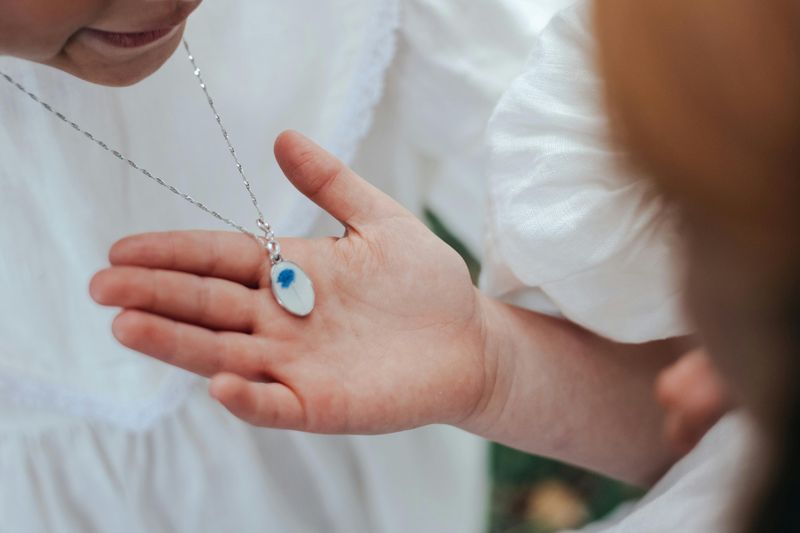Have you ever met someone who instantly makes you feel comfortable when talking to them? Some people seem to have a natural ability to connect with others, making conversations flow effortlessly. This isn’t just luck or charm—it’s actually specific behaviors that anyone can learn. Understanding these conversation habits can help us become more likeable and build stronger relationships.
1. They Listen More Than They Talk

Ever noticed how the most magnetic people rarely dominate discussions? They create space for others to express themselves fully before responding. Their eyes stay focused on you, not darting around the room looking for someone more interesting.
When you’re speaking, they nod thoughtfully and react genuinely to what you’re sharing. They put away their phones and ignore distractions, giving you their complete attention.
This deep listening isn’t passive—it’s an active choice to value your words. They remember details from previous conversations and follow up on them later. By listening more than talking, these people make a powerful statement: “What you have to say matters to me.”
2. They Ask Thoughtful Questions

Curiosity drives likeable people to dig deeper beyond surface-level chit-chat. Rather than firing off rapid questions like an interview, they naturally follow conversation threads with thoughtful inquiries that show genuine interest.
“What was that experience like for you?” or “How did you feel when that happened?” opens doors to meaningful exchanges. Their questions aren’t predictable or generic—they’re tailored to your specific situation.
Most importantly, these questions come from authentic curiosity, not obligation. They wait for complete answers instead of interrupting with their own story. This questioning style creates a psychological safety net where people feel valued enough to share what truly matters to them.
3. They Remember Personal Details

Likeable people make mental notes about what matters to you—your pet’s name, your upcoming job interview, your coffee preference.
This isn’t about having supernatural memory. They actively commit important details to memory because they genuinely care. When they use your name naturally in conversation, it creates an immediate connection.
This remarkable attention to personal details makes others feel significant rather than forgettable. It transforms casual acquaintances into meaningful relationships. The message is powerful: you weren’t just background noise during our last conversation—your life details stuck with me because you matter.
4. They Match Energy and Tone

If you’re bubbling with excitement about a promotion, they’ll match your enthusiasm with high-fives and animated responses. If you’re processing a disappointment, they’ll shift to a calmer, more supportive presence.
This mirroring happens naturally, not as manipulation. They read the room’s emotional temperature and adjust accordingly. Their voice volume, speaking pace, and even body language subtly align with yours.
This adaptability makes others feel understood on a deeper level. By meeting people where they are emotionally, they create harmony in interactions. This doesn’t mean they fake emotions—rather, they tap into genuine empathy that allows them to resonate with different emotional wavelengths.
5. They Validate Feelings Without Judgment

“That sounds really challenging” or “I can see why you’d feel that way” are golden phrases in a likeable person’s vocabulary. They acknowledge emotions without rushing to fix problems or dismiss feelings as irrational.
When someone shares a struggle, they don’t immediately counter with “look on the bright side” or “at least you don’t have it as bad as…” Instead, they create space for authentic emotional expression. Their facial expressions and body language convey understanding, not impatience.
This validation doesn’t mean they always agree with your perspective. Rather, they honor your right to feel however you feel. By recognizing emotions as valid, they build psychological safety in relationships where people can be their authentic selves without fear of criticism.
6. They Share Relatable Stories

Personal anecdotes can create instant bridges between people. Likeable people know exactly when to share a relevant story that says “I understand because I’ve been there too.” Their stories aren’t competitive attempts to outdo yours—they’re offered as genuine connection points.
These narratives are concise, relevant, and usually include a touch of vulnerability or self-deprecating humor. “That reminds me of when I completely mixed up important client names during my first presentation!”
They carefully gauge interest before launching into longer tales, watching for engagement cues. Most importantly, they quickly return the conversation spotlight to the other person. Their stories serve as brief windows into shared human experience rather than extended monologues about themselves.
7. They Use Warmth and Appropriate Humor

A genuine smile transforms conversations. They bring warmth through facial expressions, tone, and well-timed humor that puts others at ease. Their laughter comes easily but never at someone else’s expense.
They understand humor’s power to diffuse tension and create bonds. A playful comment or gentle self-deprecation can instantly make interactions more enjoyable. “I tried making sourdough during lockdown too—mine looked more like a science experiment gone wrong!”
This lightheartedness doesn’t mean they avoid serious topics. Rather, they know when humor is appropriate and when situations call for sincerity. Their warmth comes from authentic goodwill toward others, not forced cheerfulness. People leave interactions with them feeling lighter and more connected.
8. They Close Conversations Thoughtfully

Endings matter just as much as beginnings. Naturally likeable people don’t abruptly disappear or constantly check their phone signaling boredom. They bring conversations to natural conclusions that leave others feeling valued.
“I’ve really enjoyed hearing about your hiking adventures—thanks for sharing that with me” acknowledges the specific value of your interaction. They might suggest future connection points: “I’d love to hear how your project turns out!”
Even brief exchanges end with eye contact and genuine appreciation. This thoughtful closure leaves a lasting positive impression. People remember not just what was discussed, but how the conversation made them feel—respected, heard, and worthy of full attention until the very end.

Comments
Loading…